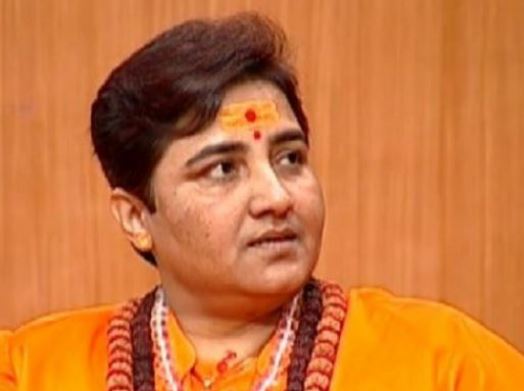Title: Justice Prevails: Mumbai Court Orders Pragya Thakur’s Attendance in Malegaon Blast Trial
(image source: india tv news)
In a significant development in the Malegaon blast case, a Mumbai court has issued a directive requiring Pragya Thakur to appear ‘without fail’ from April 20 onwards to record her statement in the ongoing trial. This decision marks a pivotal moment in the quest for justice and truth surrounding one of the most egregious acts of terrorism in India's recent history.
The Malegaon blast of 2008 shook the nation to its core, claiming several innocent lives and leaving countless others injured. The investigation into the incident unearthed a complex web of conspiracies, revealing the involvement of individuals with purported ties to extremist ideologies. Among those implicated was Pragya Thakur, a controversial figure known for her association with right-wing groups.
For years, the legal proceedings surrounding the Malegaon blast case have been fraught with delays, controversies, and political maneuvering. The journey towards accountability has been arduous, with multiple twists and turns along the way. However, the recent court directive ordering Pragya Thakur's attendance signifies a step forward in the pursuit of truth and justice.
The significance of this directive cannot be overstated. Pragya Thakur's appearance in court is not merely a procedural formality; it represents a crucial opportunity to unravel the truth behind the Malegaon blast and hold those responsible accountable for their actions. Her testimony could provide invaluable insights into the events leading up to the tragedy and shed light on the motives and individuals involved.
However, it is essential to acknowledge the complexities and sensitivities surrounding Pragya Thakur's involvement in the case. As a prominent public figure with a fervent support base, her actions and statements have often been polarizing, eliciting strong reactions from across the political spectrum. The prospect of her testimony could reignite debates and fuel speculation, further complicating an already intricate legal process.
Moreover, Pragya Thakur's journey from being an accused in the Malegaon blast case to a Member of Parliament exemplifies the intersection of politics, law, and public perception. Her electoral victory in 2019 symbolizes the blurred lines between legality, morality, and electoral politics, prompting introspection into the nuances of democracy and governance.
The court's directive also raises broader questions about the efficacy and integrity of India's criminal justice system. The prolonged delays and procedural hurdles faced in high-profile cases like the Malegaon blast underscore the need for systemic reforms to ensure timely and impartial dispensation of justice. The judiciary's role in upholding the rule of law and safeguarding citizens' rights cannot be overstated, especially in cases of such national significance.
Furthermore, the Malegaon blast case serves as a stark reminder of the ongoing threat posed by terrorism and communal violence in India. While significant strides have been made in counterterrorism efforts, challenges persist in addressing root causes, dismantling extremist networks, and fostering communal harmony. The pursuit of justice in cases like Malegaon is not merely about holding individuals accountable but also about confronting the underlying ideologies and grievances that fuel such acts of violence.
As the trial proceedings resume and Pragya Thakur prepares to appear in court, it is imperative to uphold the principles of fairness, transparency, and accountability. The legal process must be allowed to unfold unhindered, free from undue influence or interference. All parties involved – the prosecution, the defense, and the judiciary – must discharge their duties with diligence and impartiality, ensuring that justice is served and the truth is revealed.
In conclusion, the Mumbai court's directive regarding Pragya Thakur's attendance in the Malegaon blast trial represents a significant step towards uncovering the truth behind one of India's darkest chapters. It is a testament to the resilience of the legal system and the unwavering pursuit of justice. As the proceedings continue, let us reaffirm our commitment to upholding the rule of law, confronting extremism, and fostering a society built on the principles of peace, justice, and equality.





No comments:
Post a Comment